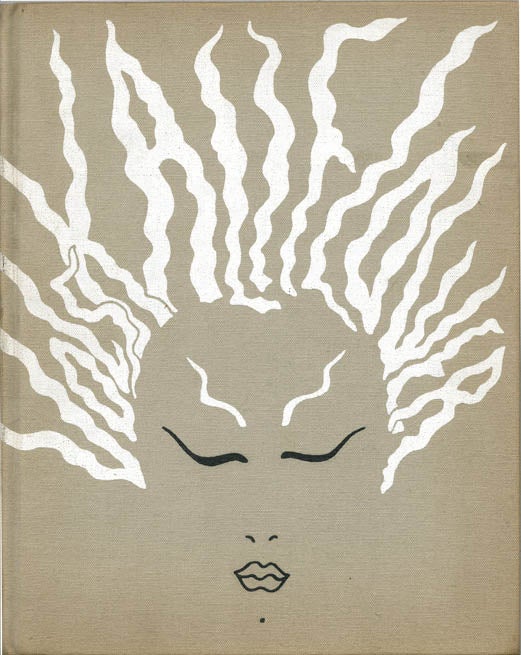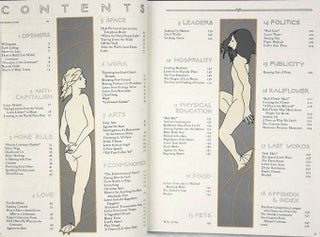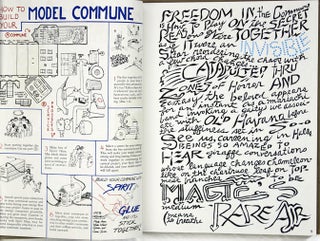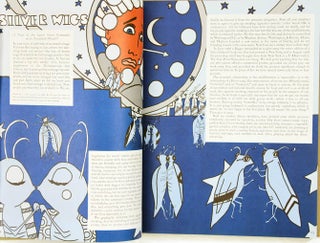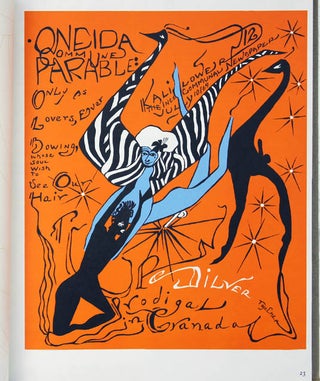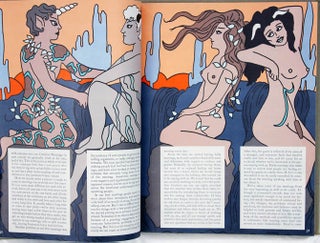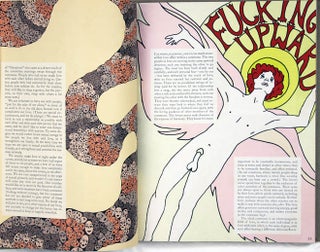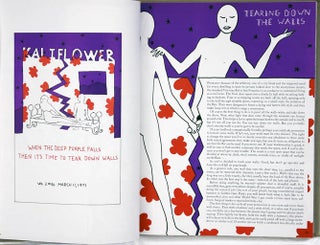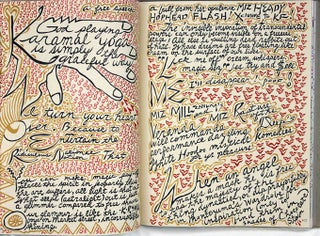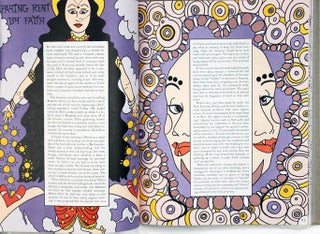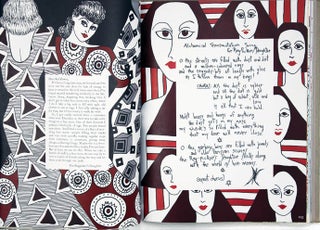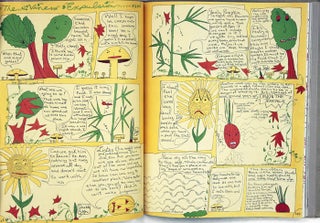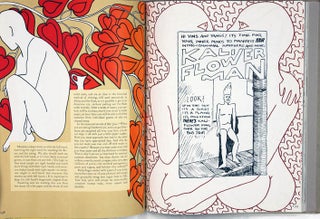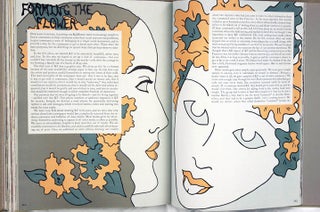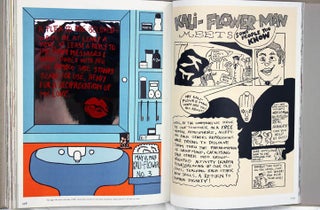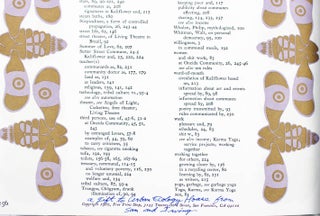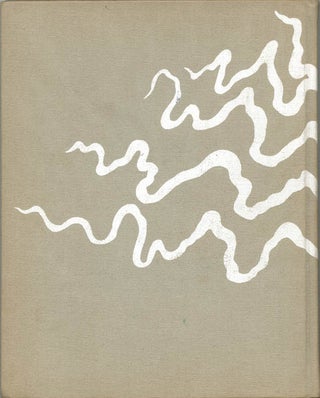173.
KALIFLOWER Volume Five. SF: Free Print Shop, 1980.
First edition. Lge. 4to. 256pp. Bound in beige cloth depicting the features of a face with flowing white hair forming the almost indecipherable word 'Kaliflower', which extends around the spine onto the rear cover. Extensively and lavishly illustrated in colour, with one page featuring silver reflective foil.
This copy inscribed at the foot of the last page: "a gift to Urban Ecology House from Sam and Irving" (Irving Rosenthal, co-founder of what became known as the Kaliflower Commune, always declined to sign copies of his work, and the inscription was written by Sam, his right-hand man).
Seven years in the making, "This book is a culling from Kaliflower, a small weekly newspaper hand-delivered to communes in the San Francisco Bay Area from April 24, 1969 to June 22, 1972", combined with additional commentary and memories about the making of it and the Sutter (later Scott) Street Commune that produced and distributed it. As with the original publication, most of the contributions are unattributed, while some of the articles have been "rewritten and altered to reflect deeper understandings", and a few pieces that were originally published in prose have been re-worked into comic strip format. The book is divided into several themed sections, ranging from "Anti-Capitalism" to "Love", and "Communomics" to "Space", and an appendix prints texts from the Diggers and the Oneida Community, both sources of inspiration for the Sutter Street Commune.
Very faint soiling of casebinding in several small spots; internally Fine. A beautiful production, in keeping with the high standards of its original incarnation.
 Back to top
Back to top

